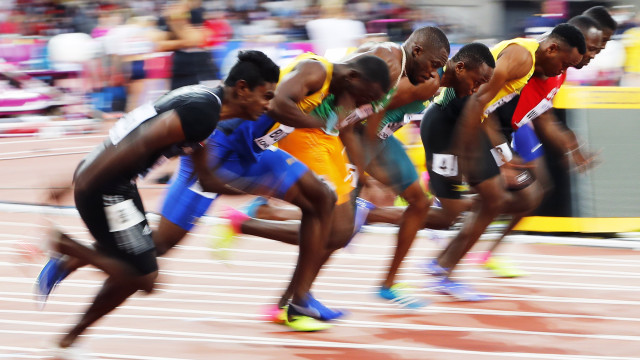Running 10 hours a week for more than 120 km is extreme exercise. However, a new study shows that some professional athletes are far from pushing the body beyond the limits of its capabilities, and with such brutal loads, they add years to their lives, reported Science alert.
The analysis included public health data from the first 200 people to run a mile in under 4 minutes in the 1950s, 1960s and 1970s. According to a team of researchers from Canada and Australia, these professional runners lived an average of almost 5 years longer than the general population.
The findings contradict the notion that too much exercise has a negative effect on long-term health. Pushing the human body to its maximum can actually be beneficial, at least for some.
Although numerous epidemiological studies indicate that physically active people live longer than inactive people, it is still unclear whether exercising more than recommended is beneficial or harmful to health.
Some scientists believe that the lifestyles of high-intensity athletes who participate in marathons, endurance cycling or triathlons may put excessive strain on their heart and put them at greater risk of early death. But while vigorous exercise can certainly put sedentary people at risk for health problems, perhaps the results are different for seasoned athletes.
In 2022, a Harvard study found that people who exercised more than recommended could reduce their risk of death by 30% — 10% more than those who followed activity recommendations.
In fact, write University of Alberta cardiologist Steven Fulks and colleagues, epidemiological studies of Tour de France cyclists, Olympic athletes and rowers show longer life expectancy than the general population.
Now researchers show that this pattern also holds for the fastest mile runners.
Athletes who can run a mile in less than 4 minutes are a unique group of people known for maximally taxing their respiratory, cardiovascular, metabolic and musculoskeletal systems.
To achieve this level of speed, runners regularly engage in high-intensity bouts of physical activity throughout the week.
In 2018, cardiologists found that the top 20 runners who ran a mile in under 4 minutes lived an average of 12 years longer than their overall life expectancy.
The new study looked at a larger cohort spanning three decades.
Interestingly, runners who ran the mile in under 4 minutes in the 1960s had longer life expectancies than runners who accomplished the feat in later decades.
"This may reflect improvements in life expectancy from the general population," the authors suggest, as well as "the management of several major communicable and noncommunicable diseases."
In other words, not all of the longevity benefits seen in professional athletes can be attributed solely to their lifestyle. It is possible, for example, that athletes possess favorable genes to a higher degree than the general population. In the group of 200 runners, the researchers counted 20 sets of siblings and several father-son duos.
"Although we could not determine the cause of death for most runners, studies involving Tour de France cyclists and cohorts of Olympians (which included middle- and long-distance runners) suggest that the longevity effect is primarily due to reduced levels of cardiovascular and cancer-related mortality," Fulks and colleagues write.
The team adds that the results of their analysis "confirm the benefits of physical exercise on life expectancy, even at the training levels required for elite performance"./BGNES
Extreme physical exertion can increase life expectancy







